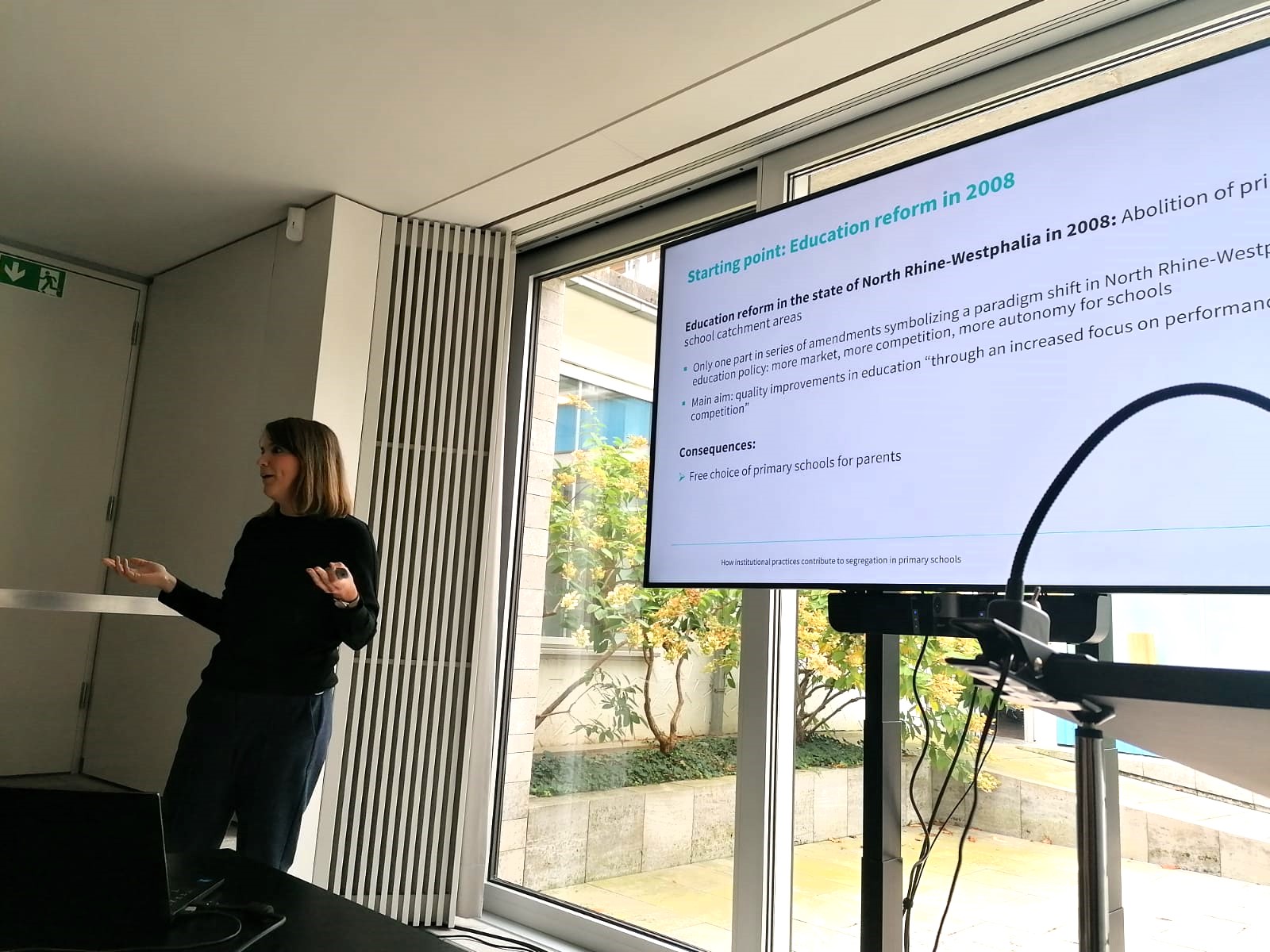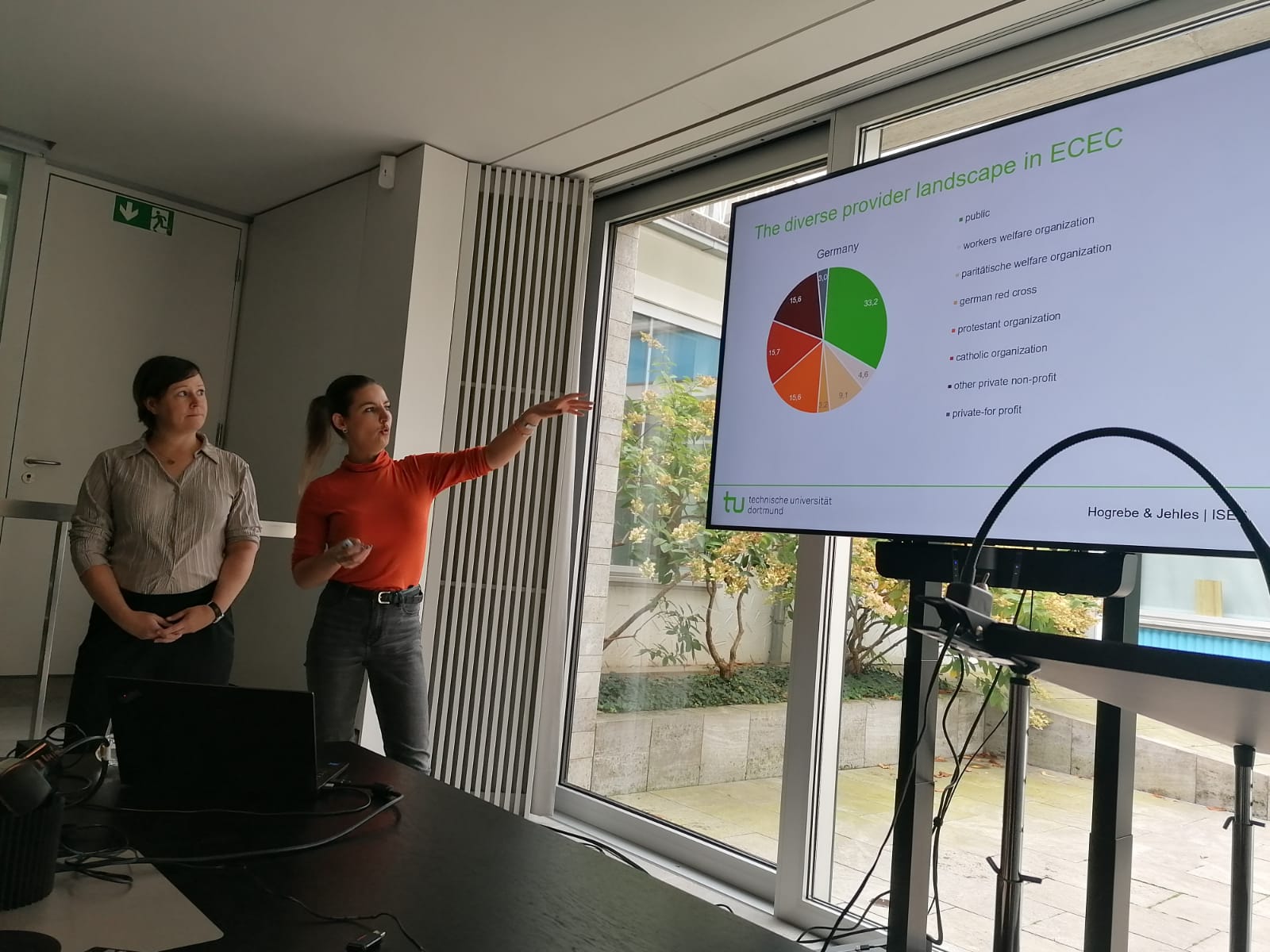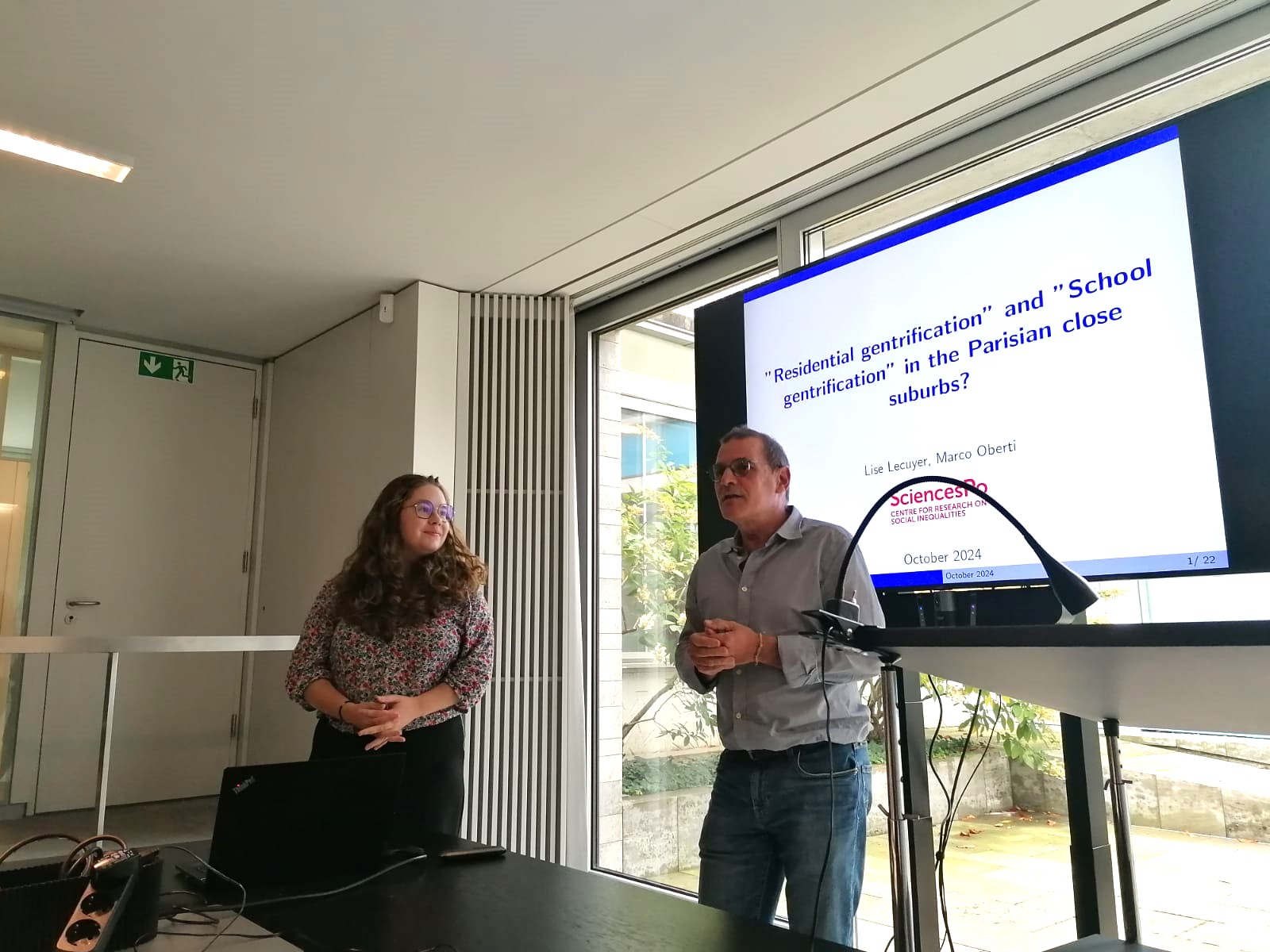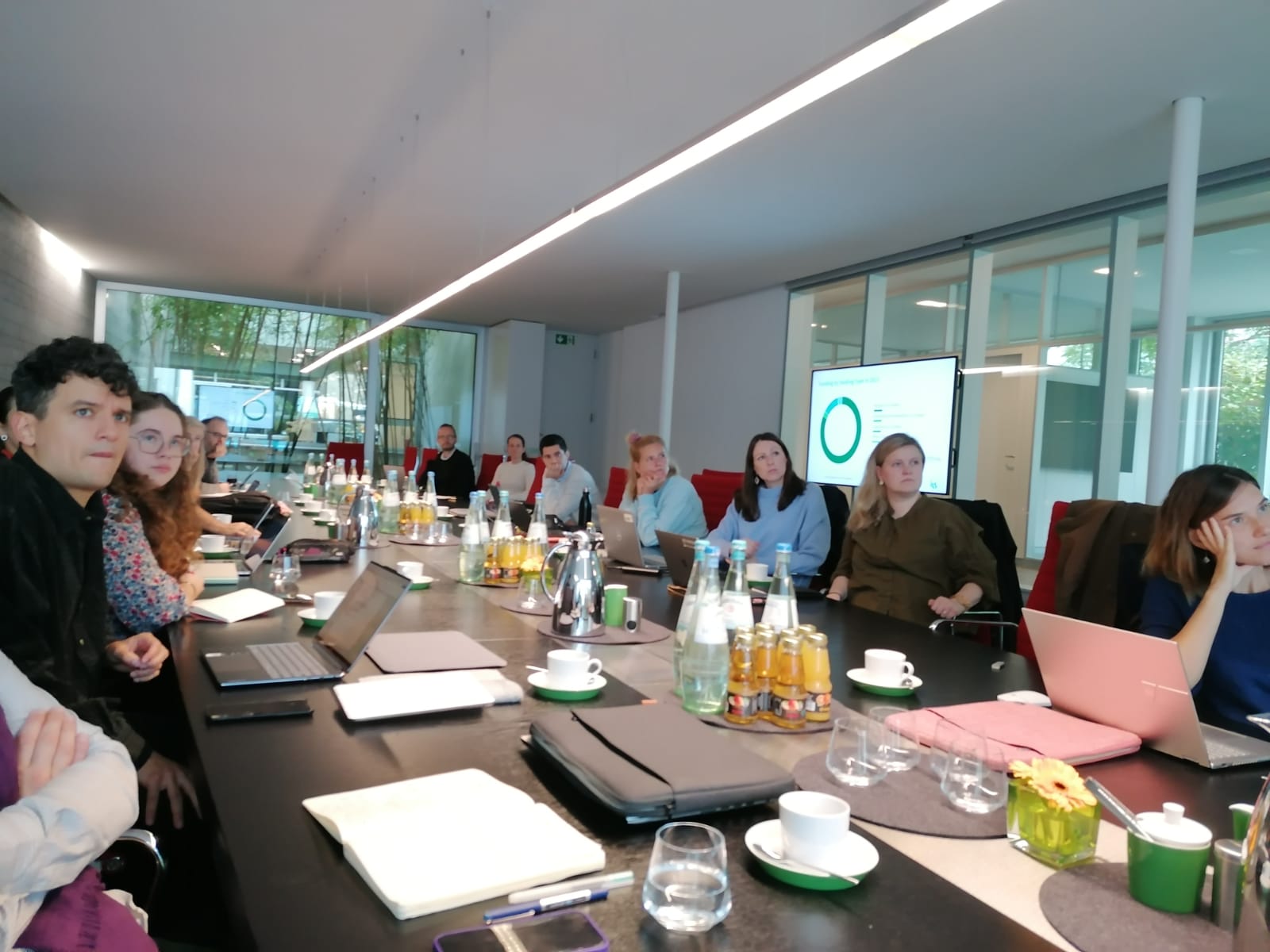Zeitz, Jana Friederike
Jana Friederike Zeitz, M.Sc. Geography
(area of specialisation: Urban and Regional Development Management)

Studied Geography with specialisation on Urban and Regional Development at the Department of Geography, Ruhr University Bochum.
Research interests:
- The right to the city
- Social and spatial inequality
- Urban and neighbourhood development planning
- Housing market and allocation strategies
Contact:
Phone: + 49 (0) 231 9051-244
E-Mail: jana.zeitz@ils-research.de
Job advertisement for the “Share4Equity” project
The Share4Equity project aims to investigate the current and potential contribution of mobility-related sharing offers in order to realize the ideas of improved transport equity/mobility justice and the 15-minute city. We are looking for support for the project. More…
School segregation in comparison: international experts discussed at the seminar ‘Unravelling pathways of school segregation: A global perspective’
Increasing school segregation, i.e. the unequal distribution of children from different backgrounds across schools, plays a crucial role in educational inequalities and differences in academic performance in many countries. The workshop ‘Unravelling pathways of school segregation: A global perspective’, organised by Dr Isabel Ramos Lobato (ILS), Dr Marta Cordini (Politecnico di Torino) and Dr Quentin Ramond (Universidad Mayor de Chile), aimed to analyse the causes, dynamics, and consequences of the increasingly unequal social and ethnic composition of schools from a cross-contextual perspective. More…
School segregation in comparison: international experts discussed at the seminar ‘Unravelling pathways of school segregation: A global perspective’
Increasing school segregation, i.e. the unequal distribution of children from different backgrounds across schools, plays a crucial role in educational inequalities and differences in academic performance in many countries. The workshop ‘Unravelling pathways of school segregation: A global perspective’, organised by Dr Isabel Ramos Lobato (ILS), Dr Marta Cordini (Politecnico di Torino) and Dr Quentin Ramond (Universidad Mayor de Chile), aimed to analyse the causes, dynamics, and consequences of the increasingly unequal social and ethnic composition of schools from a cross-contextual perspective. An interdisciplinary panel of renowned researchers on school segregation from Germany, the Netherlands, Finland, France, Italy, Sweden, the Czech Republic, and Chile was invited to participate. The experts met for discussions at the Fritz Thyssen Foundation in Cologne on 8 and 9 October. The Foundation funded the international exchange.
The comparative analysis of different spatial and institutional contexts revealed some surprisingly similar underlying patterns. For example, studies from Amsterdam, Barcelona, Berlin and Paris highlighted the sometimes significant impact of gentrification on school composition. Agent-based modelling in Santiago de Chile and Stockholm explained similarities and differences in parental school choice behaviour in Chile and Sweden. Finally, research from Germany, Finland, and the Czech Republic demonstrated the impact of institutional factors on school segregation. These studies analysed the influence of different providers on the composition of early childhood education, the behaviour of school principals in admitting pupils, the role of school districts in segregating children from Roma families, and the different possibilities for schools to recruit qualified teachers.
Insights from the workshop in Cologne © ILS
Spatial Science Colloquium 2025
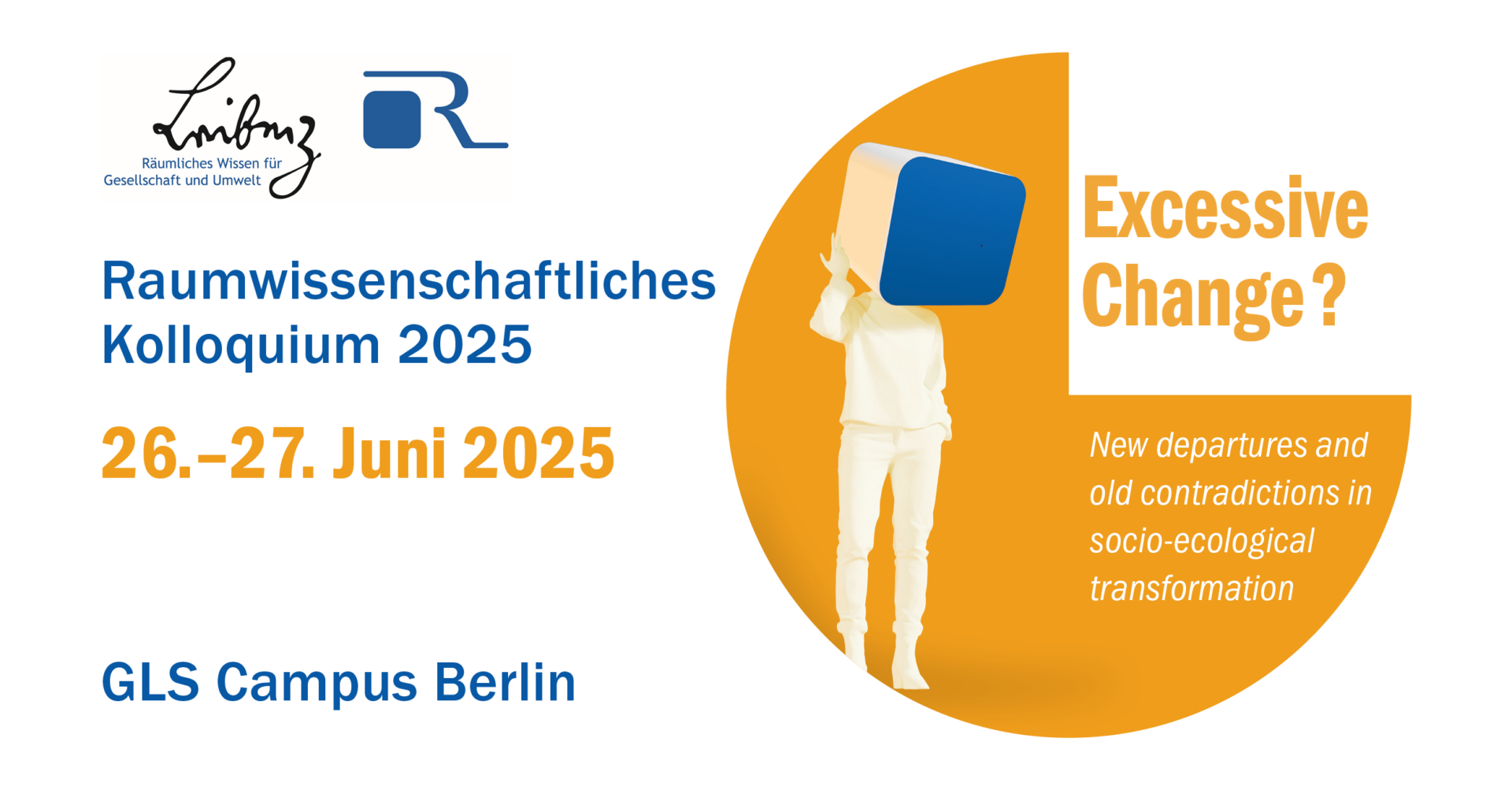
Too much change? Contradictions and new beginnings in socio-ecological transformation
26-27 June 2025
Berlin
Is the “Great Transformation” faltering before it has even begun? Many believe that the transition to a sustainable and climate-neutral society is happening too slowly. However, even limited efforts are currently facing massive backlash. Transitions in transport, the building, heating and energy sectors as well as the “Green Deal” more broadly are the subject of intense discussions. Political decision-makers are exposed to lobbying interests, misinformation and increasing political radicalisation. People who drive the transformation forward in their communities and regions and implement innovative projects are exposed to numerous constraints, emotional debates and protests, and even violent attacks. Yet regions, cities and municipalities are crucial arenas for what is referred to as the “Great Transformation”. This great change can only succeed if many local and regional individual initiatives come together. This raises a critical question: how can we create new momentum for transformation, both at the local level and on a larger scale?
We want to explore this question in keynote speeches and workshops. Invited are experts from academia, political leaders in local, state and federal governments, administrators, planners, members of initiatives, journalists and anyone else who is concerned with change.
The event will be held in German and English.
Keynote Speakers
- Andreas Novy, Professor of Socioeconomics, Vienna University of Economics and Business
- Dirk Messner, President of the German Environment Agency
- Anna Lisa Boni, Deputy Mayor / City Councillor in Bologna (enquired)
Workshop topics:
- local conflicts and oppositions in relation to transformation projects,
- local and regional possibilities for design and experiments,
- transformation and public administration,
- alternative models of prosperity
Anmeldung
Die Veranstaltung ist bereits ausgebucht.
About the colloquium
The Spatial Science Colloquium is organised by the Leibniz Research Network “Spatial Knowledge for Society and Environment – Leibniz R”. It addresses strategic spatial science issues of overarching importance to an inter- and transdisciplinary professional audience.
Energielandschaften der Zukunft durch Agri-Photovoltaik? Neuer Arbeitskreis der ARL ist gestartet.
Die Bedeutung des Themas Agri-Photovoltaik ist angesichts der zunehmenden Nutzungskonkurrenzen um die endliche Ressource Fläche und die dringend notwendigen Antworten auf die Klimakrise hoch. Agri-Photovoltaik (Agri-PV) nutzt landwirtschaftliche Flächen sowohl für die Nahrungsmittelproduktion als auch für die Stromerzeugung durch Sonnenenergie. Dadurch kann Agri-PV die Flächeneffizienz steigern und den Ausbau von Erneuerbaren Energien sowie den gleichzeitigen Erhalt landwirtschaftlicher Nutzflächen ermöglichen. Der neue Arbeitskreis (AK) der ARL setzt sich aus zwölf Fachleuten zusammen, die gemeinsam die Chancen und Möglichkeiten von Agri-PV ausloten und hier vor allem überörtliche Wirkungen sowie planerische Anforderungen in den Blick nehmen. Mehr…

